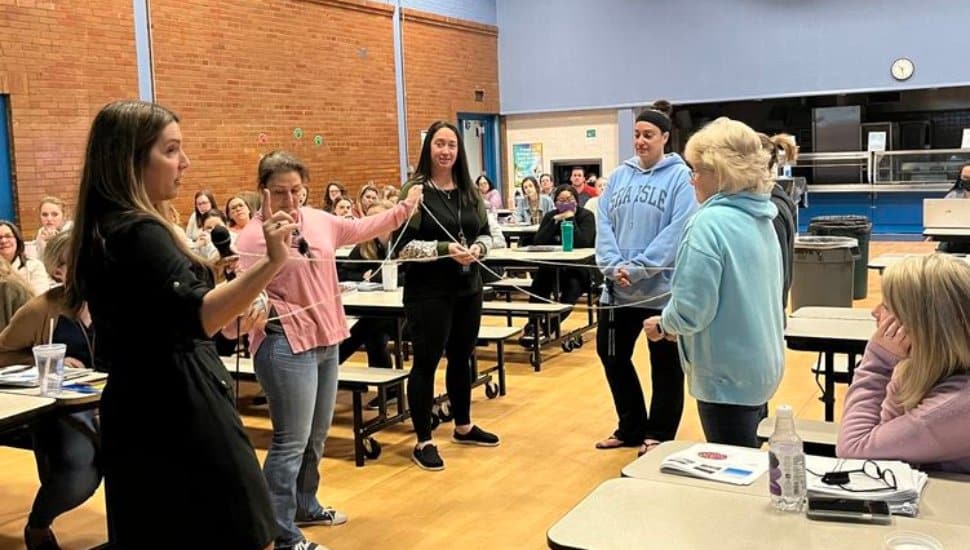Penn State Abington Workshops Help Teachers Support Children with Trauma


Nationwide, teachers often find learning waylaid by the impact of trauma, and Penn State Abington workshops are giving teachers the resources to support their students.
Teachers’ accounts are supported by federal government research, which found that more than two-thirds of children and teens experience at least one traumatic event by age 16.
These staggering statistics coupled with Penn State’s land-grant mission led the Penn State Abington Office of Continuing Education to collaborate with ChildWIN (Child Wellness Institute) to develop workshops focused on trauma-informed practices for educators.
An in-service day for teachers at the School Lane Charter School in Bucks County featured the foundations workshop led by Gina Hernandez, executive director of ChildWIN and a licensed professional counselor, who talked about these statistics, and more.
“Kids get labeled as troubled, but their behavior is a symptom of what’s going on in their lives. You need to understand what causes the behavior,” Hernandez told the teachers and administrators.
She shared the science behind the physiological changes that trauma inflicts on brain development including adverse childhood experiences and their effects on the human brain.
Since the brain is not done developing until age 25, every positive interaction is an intervention to the child’s brain. In addition, brains that experience high levels of toxic stress are smaller.
Hernandez offered suggestions to implement trauma-sensitive practices, focusing on building relationships and connections with students such as creating a school culture that supports healing environments, incorporating awareness activities (films and other resources), and ongoing skill building for the entire school community.
“Ask, how can I help? What do you need? What can we do together to make this better?” Hernandez said. “Stay calm, see the need behind the behavior, and then meet the need. It takes a calm brain to calm a brain.”
Read more about how this workshop that aims to help children in need of support on Penn State Abington’s website.
Connect With Your Community
Subscribe for stories that matter!
"*" indicates required fields






























